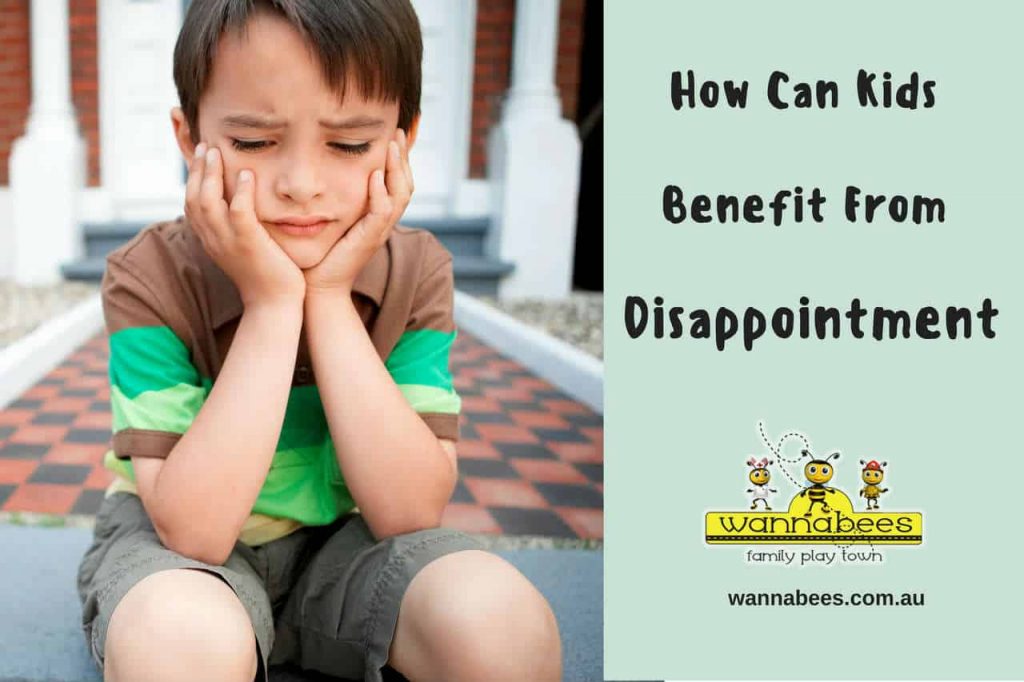
Emotional Intelligence: Helping Kids Learn From Dissapointment
Life is full of big and small disappointment, whether it’s a failed trip to the park because of the rain or the ice cream shop has run out of chocolate sprinkles.
Though we try so hard to keep our kids from such disappointments, we can’t – but it’s a good thing.
When children learn at an early age that they possess the tools that they need to help them get over disappointment, they’ll be able to rely on that throughout childhood and even as adults.
Children are not to be shielded always from disappointment; otherwise they will never learn this important skill they need in life.
However, lend a hand in helping the child to seek support, communicate and lean on others in such times.
It’s not always that easy but with the right tactics, you can properly channel your child’s reaction to what life throws his/her way.
When Little Problems Generate Big Tantrums

Does your child burst into tears when his favorite juice runs out? Or does she throw herself to the floor, when a sibling or another kid plays with her toy?
If the smallest disruptions cause you to tumble over to make her/him happy or if your child is so disappointed, he almost cannot get off of it, then you’ll have to go back to the basics.
Teach your child some things can be changed and others cannot.
He may not comprehend that you cannot solve the problem or that by throwing a tantrum, he won’t get what he wants. Confirm his distress by letting him know you understand how you feel and find more effective solutions for the situation.
Get your preschooler Involved in different activities till she discovers one she truly likes
This could become something she could master. If a child can find something she knows she is good at, and can turn to when the chips are down, it can serve as a massive ego boost. It can affect her disposition towards a disappointing situation to something more positive and hopeful for next time.
Don’t let your child’s negative reaction to disappointment become a reason to punish him/her, especially if she’s prone to tears.
Although it is not easy to keep yourself in check when your child throws tantrums, you also need to remind yourself of the times you’ve also felt disappointed and needed to vent or have a good cry through a rough situation.
When Your Child Sulks

If you notice that your child gets quickly upset, but the situation doesn’t degenerate into a full-blown tantrum, then he/she’s almost there. To help boost the attitude, take these steps moving forward.
Give your child a choice when the unexpected happens.
Kids this age react to inability to get what they want in life by sulking. They feel they have even less control of their life than usual. But giving a child the opportunity to make a decision can empower them and turn the situation around. For example, you can say “We can’t visit the store now, but what dress would you like to get?” or would you like to go tomorrow or next?”
Find ways your little one can help others.
Volunteering can massively boost his mood when feeling down. You can volunteer together at a local nursing home or let him join in in helping prepare dinner, even though it might mean cleaning up more mess. Selfless acts such as these even at this young age helps children begin to see their problems differently as they help others feel positive and happy.
Don’t always rush to fix a problem, instead help your child solve it herself.
Be it a broken toy or a fight over the biggest toy, find ways to solve a problem with your child rather than for your child. Although this could take some time, with time she’ll learn that she can make a bad situation better on her own.
Helping Your Kid Grow More Tolerant

Maybe your kid is able to take setbacks and seems to understand that sometimes disappointments are not necessarily people’s faults. What if he isn’t tall enough for that roller coaster, he immediately finds a different ride.
While the general belief among experts is that children might be born with the ability to face adversities and deal with them, their ability to or lack of might have something to do with you. So if you know you can make him feel better about his decision, give him a pat on the back and help him boost bounce back skills further.
Empathize with your child’s disappointments.
Put yourself in your child’s shoes and make him realize you know how he feels. For example, if a friend unexpectedly cancels a date, tell him how you also felt upset when same thing happened to you. He’ll see it’s okay to feel bad about situations like that but can hope for another time.
Get our child around people you trust – people whom she can turn to in difficult times.
The most resilient kids know they cannot fight their battles alone, so they draw in others to help them. Create a network of trusted people besides you and your spouse for her to turn to in such situations.
Use your child’s mistakes as opportunities to teach a lesson.
Kids this age need to understand what it implies when they do something wrong, however desist from pointing that out to them instead ask prompting questions that will make him figure out on his own.
What Not to Say When Your Kid is Going Through Disappointment

While you mean well for your children, you may also say the wrong things when they throw a tantrum or talks back. Here are some things you should not say or stop saying altogether and better things to say instead.
DON’T SAY: “You’re acting like a baby.”
SAY: “It’s okay to be disappointed. I’d feel the same way in this situation too.”
DON’T SAY: “Let’s do this instead.”
SAY: “Do you have any ideas for what we can do instead?”
For more ideas check our blog post “Positive Parenting Defined And Some Practical Tips“.
Your Turn
When you are disappointed, you know how difficult it might seem at such times. Therefore, you can try to help your child in finding ways in dealing with disappointment better by following these useful tips.
You will realize that with time they will begin to see life differently and setbacks become an opportunity to feel bad but not dwell on the negative, but focus on the positive side of things.
It’s all about boosting emotional intelligence, and there are other ways to do it. Wannabees can run role-play activities which help kids learn to manage their emotions in a safe and supportive environment. Just reach out and lets start the conversation.
